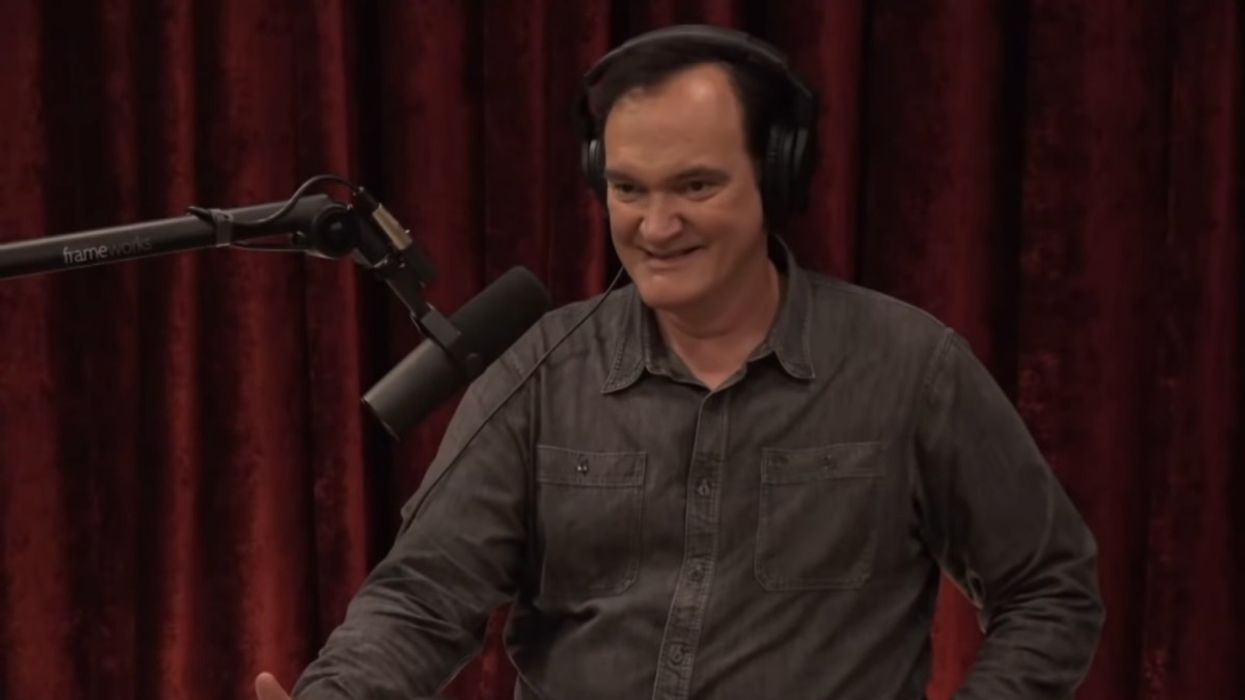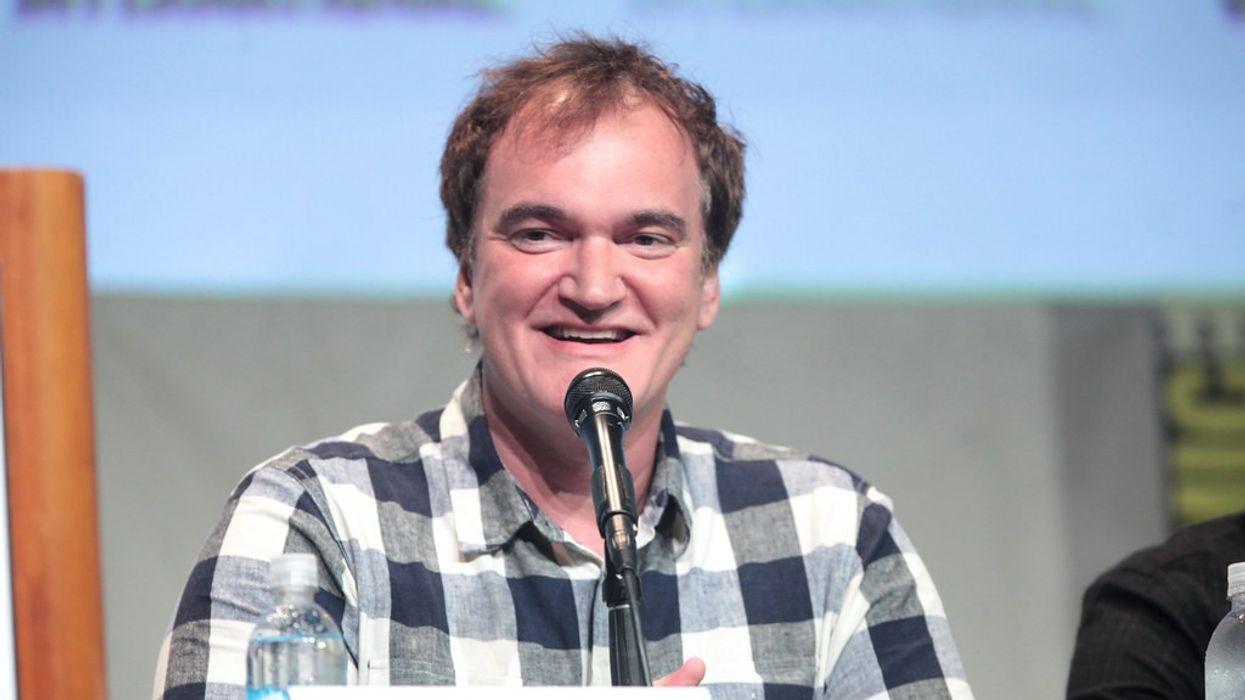Quentin Tarantino's Explanation of Harvey Weinstein's Crimes Is Incredibly Disappointing
I want my favorite filmmakers to do better.

To say that I am a Quentin Tarantino fan seems like an understatement. I've seen all his movies many times, read articles about him, and spent Monday listening to almost seven hours of podcast content about the guy released that morning.
I think Tarantino is one of our greatest living filmmakers. He's done more for Hollywood and American directors since anyone but probably Spielberg and Scorsese, and has become the voice of obsessed movie nerds everywhere.
After rocketing into the spotlight as a writer, then director, Tarantino took over the film world, soaring to popularity and making movies that never missed. Behind many of his hits in the 90s and early 2000s was Harvey Weinstein, head of Miramax and then the Weinstein Company. He was a Hollywood mogul who was ubiquitous with screaming, cursing, and lewd behavior.
Weinstein's crimes were cast off as eccentricities by his inner circle because he brought home gold statues and held a lot of power. But as his accusers found their voice in the #MeToo movement, and as more and more brave women came forward, much of Hollywood was forced to reconcile with the fact that they had been Frankenstein, and Harvey was their monster.
Weinstein lost his court battle and was sent to prison. After that, the roaring waters stopped surging, and Hollywood was left calmer in his absence, though no one really had a come to Jesus conversation about what they did to let Weinstein get to such a place where he thought he was invincible.
When Tarantino spoke on the subject in the New York Times in 2017, he said was "shocked and appalled."
While I don't think anyone should be held accountable for what Weinstein did behind closed doors, many people had to become introspective about what it meant working with him and making sure he held onto power. And we need to see what level of facilitation Weinsten received to damage and abuse these people for so long. If there were accomplices, they should be rooted out.
But aside from the people who made it directly happen, we also have to come to terms with the people who heard things and brushed them aside.
Tarantino admittedly was one of those people. He brought his projects to Weinstein over and over again. They were an inseparable duo when it came to making movies. So naturally, people wanted to know who knew what.
But that topic wore off as a talking point as Tarantino released another masterpiece movie, Once Upon a Time in Hollywood, an eerily prescient tale that talked about the hopes and dreams of Hollywood icons who never quite got their time in the spotlight and would be remembered for tragedy. Tarantino used that movie to rewrite history and see these people shine. It was a stunning look at Hollywood stardom. While set in 1969, the movie could easily have been set today. And about the careers Weinstein neutered behind closed doors when sexual favors were not granted, and advances were brushed away, instead of about Charles Manson.
All this brings us to a recent episode of the Joe Rogan Experience that Tarantino appeared on to promote the novelization of Once Upon a Time in Hollywood. While in the interview chair, Rogan did something few had done since Tarantino spoke with the New York Times. He pressed him on his relationship with Weinstein and what happened.
You can watch what Tarantino said below.
For those of you who skipped the clip, I'll recap briefly.
Tarantino told Rogan that "everybody" knew about Weinstein's behavior, and referred to him as a "fucked-up father figure." He continued, "I wish I had done more" to intervene. "I wish I had talked to the guy," and "I wish I had sat him down and had the uncomfortable conversation."
For clarification, Tarantino said, "I didn't know about any rapes or anything like that... I chalked it up to the boss chasing the secretary around the desk. He was making unwanted advances. That's how I looked at it."
Finally, Tarantino said, "I wish I had sat him down and gone, 'Harvey, you can't do this, you're gonna fuck up everything,'" and "I don't think anybody talked to him about it."
In a moment of self absolution, Tarantino added, "everybody who was in his orbit knew about it," claiming they "probably" were unaware of "anything about rapes... but they had heard things."
There's a lot to unpack here, and I'm sure I won't be the most eloquent person to write about this issue. But I felt like we couldn't have a website about Hollywood careers and tips without addressing it.
Tarantino is one of my favorite filmmakers, but he missed the mark here. The reason people like Weinstein were able to grasp so much power in Hollywood was not their taste, or because people liked them, it was because they were able to operate on fear. There was a genuine fear that you could end your career or end your publication if you crossed him.
This fear was allowed to build because the culture made it okay for a Hollywood type to be the person "chasing a secretary around a desk." That's still a problem, but it was part of the internalized casting couch lore of old Hollywood. But it's not okay for anyone to do that. We've known that for a long time. And yet, it was called old school.
Things should not have to become full-on sexual assaults for people to say something. If Hollywood is going to atone for its sins and people will regret doing nothing, they need to stop pushing aside the fact that they didn't know something heinous was going on. They just knew something a little bad.
There are no excuses for either kind of behavior.
Another thing I wish Tarantino said was something about the survivors. His entire conversation was framed in a way where he could have saved and stopped Harvey, the producer who gave him his dreams. In the heat of the moment, maybe he wasn't thinking, but fuck Weinstein. The people who needed someone like Tarantino to help were Weinstein's victims.
I don't want Tarantino to change the past, but I can say that as men in Hollywood, the onus is on us to create the change and to have those conversations. Tarantino could have made movies with anyone else in the industry, if he knew Weinstein was a bad guy, he didn't have to go back. When you have power, like Tarantino eventually achieved, you have to make sure that power is put to good use. You have to be willing to go the extra mile to foster a safe and inclusive environment for those around you. Not just use that power to get the final cut on your movies.
The only way Hollywood can get better is to not only reckon with the past but to demand tangible change in the future. That's the statement I want to hear, not on some little blog on the internet, but from my favorite filmmakers. I want to hear them come out and say what they can do now, not what they didn't do then. And then I want to see them do it.
We talk a lot on here about "show, don't tell."
So show me something.











